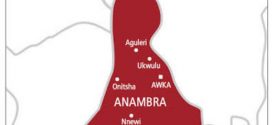………Over 10m Debit Card Issued
Pan-African financial institution, United Bank for Africa (UBA) Plc, has again demonstrated its superiority in the Nigerian e-Banking space with the issuance of over three million Near Field Communication (NFC) technology enabled contactless cards to its teeming customers.
UBA has revolutionised the payments landscape in Nigeria in 2015, with the introduction of contactless payment cards which enable customers pay with ease by leveraging the NFC technology.
The NFC technology allows wireless communication between devices that are a few centimetres apart. The NFC payment Card uses microchips/antenna to transmit data via shortwave radio frequencies. Usually, when one NFC-enabled device is close enough to another NFC device, a connection can be established and data shared between them. The card communicates data to the reader to initiate and complete the transaction using NFC technology.
Being a forward thinking institution that puts the needs of its customers as its priority, UBA with operations in 19 African countries, developed this solution to ease transactions and to make life simpler for its customers in all parts of the world. This has been done in response to the increasing need for digitally-driven processes as well as to develop products to meet up with the current fast-paced needs of consumers.
In addition to the contactless cards, the bank has issued well over 10 million debit and prepaid cards, serving both customers and non-bank customers in its countries of operation.
With the contactless card, users continue to experience limitless convenient payment services as the contactless payments are fast, easy and secure with the added advantage of the NFC technology which works by simply touching the card against the reader without slotting it into the terminal. Customers are also able to use the cards to pay on regular POS terminals.
UBA’s Group Head, Cards, Dr. Yinka Adedeji, said “We are delighted to reaching this milestone. Our customers have found out that with our contactless cards, they make payments for everyday essentials and other things that money can buy the contactless way, and these cards can be used across all the channels where you use your regular card – ATM, POS and Web”.
He also explained that all UBA contactless cards use the Combined Data Authentication EMV Chip “which is currently the highest standard for chip technology used in payment cards to ensure that UBA contactless cards are absolutely safe.”
These cards, which work anywhere in world, have over the years, made it easy for customers to have access to basic banking transactions quickly, safely, and conveniently without having to visit bank branches, via ATMs, POS and on the internet.
UBA’s Group Managing Director, Kennedy Uzoka, said the bank remains a leader in the e-banking innovation space, adding that UBA cards are protected with the best in class security tools.
He said, “We have driven other initiatives such as the acceptance of international cards on our POS terminals and that UBA PoSs are now NFC enabled. Our POS terminals are also enabled for Dynamic Currency Conversion (DCC), which means customers and non-customers using foreign payment cards on our POS can see their transaction value in the currency of their card or home country; this aids transaction tracking and personal account reconciliation.”
With a customer base in excess of seven million, UBA has invested heavily in building a robust and secure digital banking platform that supports its operations globally through strategic partnerships with various local and international organisations.
The UBA Group is a highly diversified financial services provider, with business offices in New York, Paris and a subsidiary in London. A leading player on the African continent, UBA has significant market share and operations in 19 different African countries.
 Hottestgistnaija.com
Hottestgistnaija.com





